According to the Chinese lunar calendar, Feb. 19, 2015, launches the Year of the Sheep, celebrating the animal considered to be most emblematic of kindness. What better time to share our love of these remarkable animals? Though many people eat lamb and wear wool, far fewer have actually interacted with the animals exploited for these products and know what they are really like. So this year we’re inviting everyone to celebrate sheep with us, in the hope that a deeper understanding of these complex creatures will change the way they are viewed and treated.
1. Sheep are notoriously friendly
At Farm Sanctuary’s shelters in New York and California, our sheep wag their tails like dogs, they know their names, and they form strong bonds with other sheep, goats, and with people (unless they come to us traumatized, as some do).
2. Sheep experience emotion similarly to humans
A study published in Animal Welfare showed that sheep experience emotion in ways similar to humans. The authors concluded that “sheep are able to experience emotions such as fear, anger, rage, despair, boredom, disgust, and happiness, because they use the same checks involved in such emotions as humans. For instance, despair is triggered by situations that are evaluated as sudden, unfamiliar, unpredictable, discrepant from expectations, and uncontrollable, whereas boredom results from an overly predictable environment, and all these checks have been found to affect emotional responses in sheep.”
3. Sheep have panoramic vision
Thanks to their cool rectangular pupils, sheep can see almost 360 degrees, including directly behind themselves!
4. Sheep know how you feel
Another study from Cambridge University found that sheep — like humans and some primates — can pick up emotional cues in both humans and other sheep. Not surprisingly, they strongly preferred smiling and relaxed expressions over angry ones.
5. Sheep never forget a face
Researchers in the United Kingdom, writing for Nature, found that sheep have the same “specialized neural mechanisms for visual recognition” that humans do, which allows them to remember the faces of at least 50 individual humans and other sheep for more than two years, “and that the specialized neural circuits involved maintain selective encoding of individual sheep and human faces even after long periods of separation.”
6. Sheep are the CEOs of the barnyard
Sheep can learn how to solve puzzles, remember what they’ve learned, and adapt to changed circumstances — all much more quickly than monkeys. The researchers note what they call the “impressive cognitive abilities of sheep” and find that “sheep can perform ‘executive’ cognitive tasks that are an important part of the primate behavioral repertoire, but that have never been shown previously to exist in any other large animal” other than humans and some other primates.

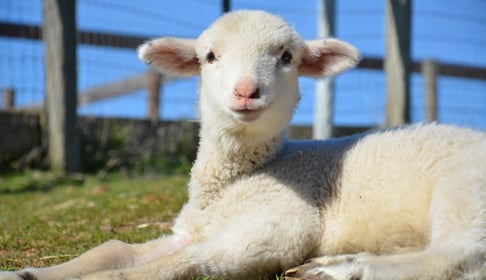
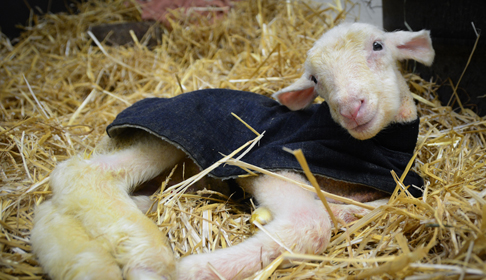
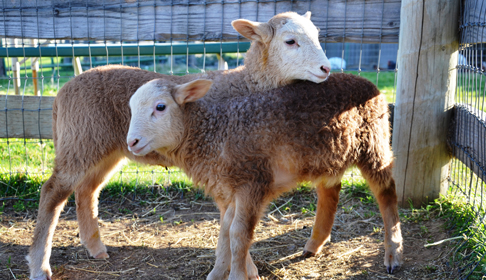
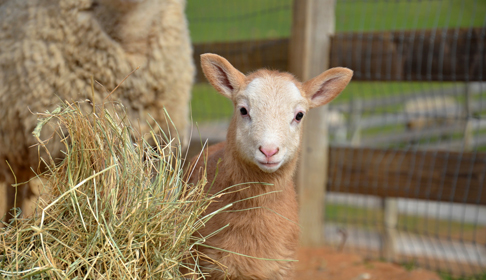
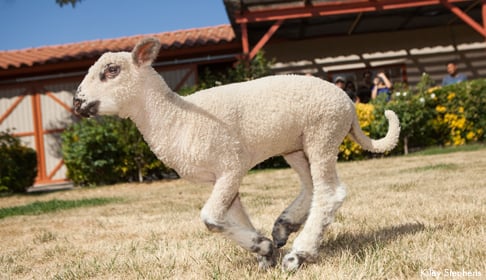
I love sheep. I have had the pleasure of interacting with them and I know what gentle, kind beings they are. I was brought up in England where lamb is a favourite on the dinner table on Sundays. But do to my love for animals and enducation about where our meat comes from I have stopped eating lamb and encourage my parents to do the same. Thank you Farm Sanctuary for everything you do for the animals. Gener Bauer is truly one of my heroes!!!!!
Thank you for so succinctly and eloquently raising awareness of the “humanity” of farm animals. The sooner the general public discovers how much in common they have with animals that are being exploited and abused horribly, the closer we will get to emancipation.
We are on the cusp of history where animal rights converge with environmental, and health challenges to our species and planet. You are among the ones spearheading and leading the way, Kudos!
Pingback: Sheep Make Good CEOs - Advocacy for Animals
wow–I was going to get a cat, but now maybe a sheep!!!
thank you for the beautiful and enjoyable pictures of sheep…makes for
a happy day
The sheep info is beautiful!
As we enter the Holy Season of Lent, may we then remember it’s no wonder that Our Lord is frequently referenced as the LAMB OF GOD?
That’s right: In the Gospel according to John, John the Baptist refers to Jesus as the “Lamb of God”; in the Passion narrative of that gospel, Jesus is understood to die on the cross at the same time as the lambs are being slaughtered for the Passover Seder; and then in the Book of Revelation, a third John, viz. John of Patmos, says he saw Jesus in the form of “the Lamb who was slain.”
So the historical and cultural context was hardly a pro-animal one. The biblical tradition has generally been anthropocentric, and the enslavement, exploitation, and killing of nonhuman animals have gone without question. Nowadays, thank God!, many Jews and Christians are turning to vegetarianism and veganism, on the basis of true, deeply cherished biblical values, such as a humble respect for all of God’s creatures, and the loving care that is to be directed toward all the poor, the vulnerable, the underprivileged, the marginalized, the exploited, the abused, including nonhuman animals raised for food. But they (we!) are still a small minority.
Wonderful! Thank you for posting these beautiful and innocent babies. How anyone can eat them is beyond me.
Such beautiful little animals.
What beautiful little babies. What a joy that their lives will be lived in peace and harmony. My heart breaks for the babies who will not.
BEAUTIFUL! THANK YOU!
When I was a child we always had sheep and goats as pets. Mom would let us keep them in the kitchen and we would make a bed for them to sleep in. Usually one of us kids would be sleeping with them. They actually do act like dogs. The sheep would follow us around we dressed them up as our children and they would go everywhere we went. My brother and sister and I loved them unconditionally. One of our favorites Baily would run through the house looking for Mom. She would baa and it sounded like she was saying mom and she would run into the living room and jump on mom’s lap. She would then sit on her lap and take a nap. We were very lucky to have parents that taught us to love and care for all animals. We did not live in the country we lived right in the main area of a small town. Unfortunately this town no longer allows residents to have farm animals in the city limits. How sad for children today.
Could you please post the references for these points? I’d really like to read more about this, and I know if I share this with my near-eating friends that’s the first thing they’ll ask for.
I am just so happy that some of our animal friends get to live a beautiful life at the Farm Sanctuary…thanks for sharing this pictures and thanks Susie for being such a compassionate human being…it was a pleasure and a wonderful experience to visit the farm and meet my four legged fiends and you…
Pingback: Sheep Make Good CEOs and 5 More Fascinating Facts in Honor of the “Year of the Sheep” | The Metal Hare's Mix
Pretty nice post. I simply stumbled upon your blog and wanted to say that I
have truly enjoyed browsing your weblog posts. After
all I will be subscribing to your feed and I hope you write again soon!
Thank you for continuing to remind us that ALL beings have the spark of life, whether they can verbalize it or not. I am 66 and have been a vegetarian since age 12. Your work is vital to the humane treatment of the Earth’s creatures.
Hi:
I’m from Taiwan. We just celebrated our Chinese lunar year. (To me, both sheep or goat could be the lucky animal of the year.That’s not a problem. ) And we’re looking forward for the coming Chinese Lantern Festival. There will be a main theme lantern, which is shaped in goat. At the same time, people can get the hand-carried lantern, which is shaped in sheep.
And the main reason I leave a reply is that I’m wondering is it OK that I introduce and translate this article in Chinese to a website of Taiwan. Also, I’ll make sure to note the source. Thanks a lot.
Thanks so much for your comment. Yes, of course, please feel free to translate and share this blog post. Thanks!